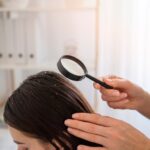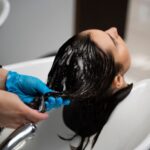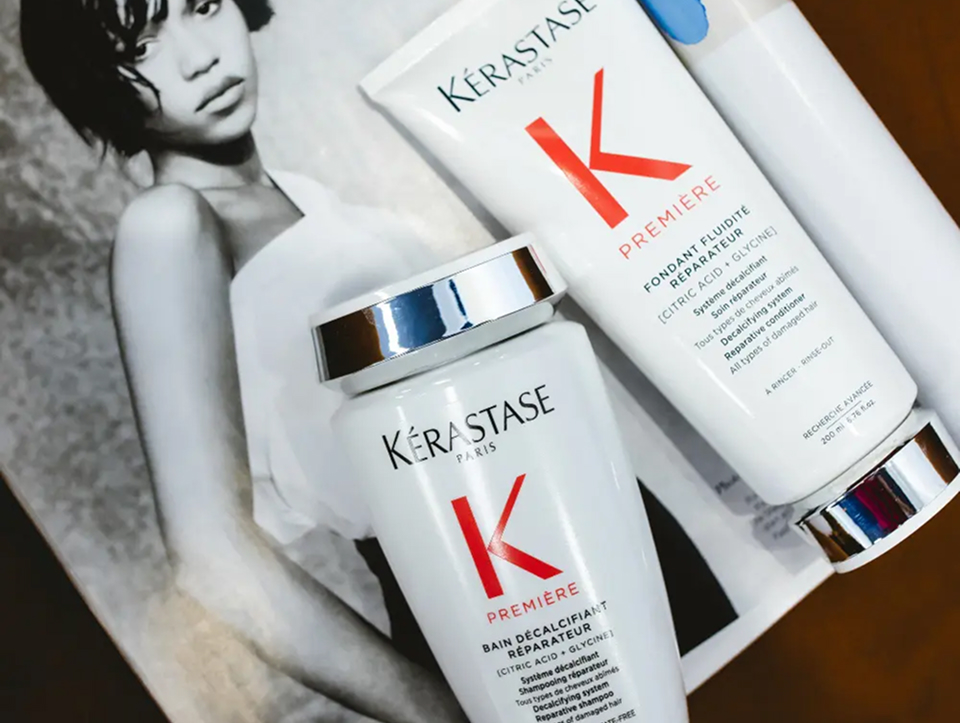Dealing with a sensitive scalp can be uncomfortable, frustrating, and sometimes painful. Symptoms like tenderness, itching, burning, tightness, or flaking can interfere with your daily life. Identifying the cause is the first step to finding effective relief.
Whether it’s stress, hair products, hormonal changes, or even certain hairstyles, understanding your scalp is essential to keeping your hair healthy. At Haste Hair, we’ve helped countless clients discover the causes of their scalp sensitivity and provided soothing treatments for lasting results.
What Is a Sensitive Scalp?
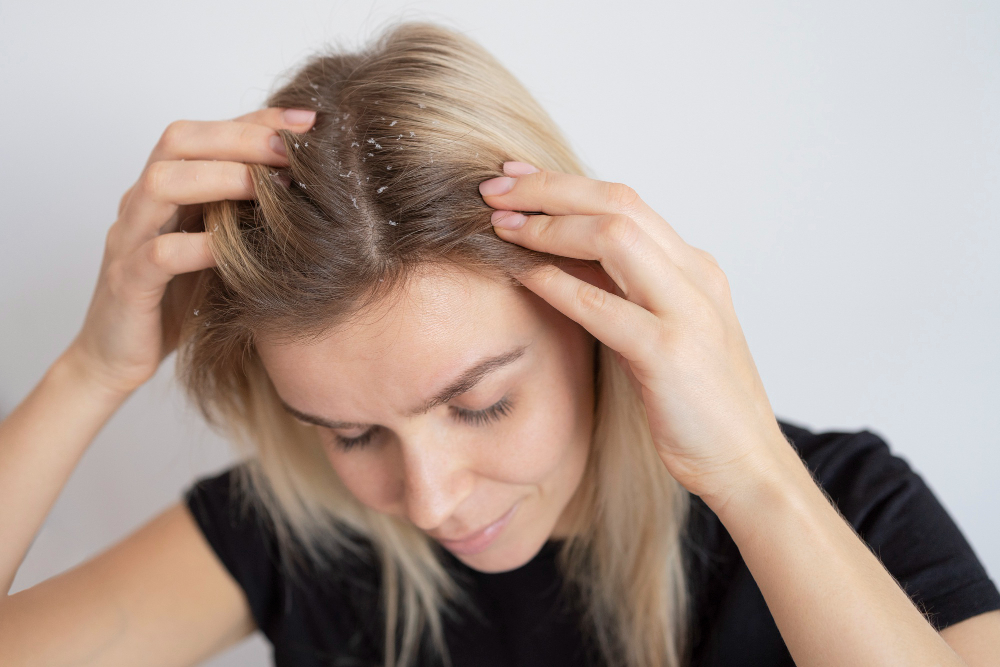
A sensitive scalp is more than just an occasional itch; it’s a heightened reactivity of your scalp’s nerves and blood vessels. Symptoms include:
- Burning
- Itching
- Tingling or tightness
- Redness or inflammation
- Flaking or dandruff
- Pain or tenderness upon touch
Sometimes, there are no visible signs of a condition called trichodynia or scalp dysesthesia, where the scalp feels uncomfortable without apparent irritation.
🔬 Research shows that scalp sensitivity can be linked to stress, autoimmune disorders, or skin conditions like eczema and psoriasis.
👉 Extra Tip: Keep a scalp diary noting when symptoms flare up (new products, stress events, weather changes). This helps pinpoint triggers.
Causes of a Sensitive Scalp
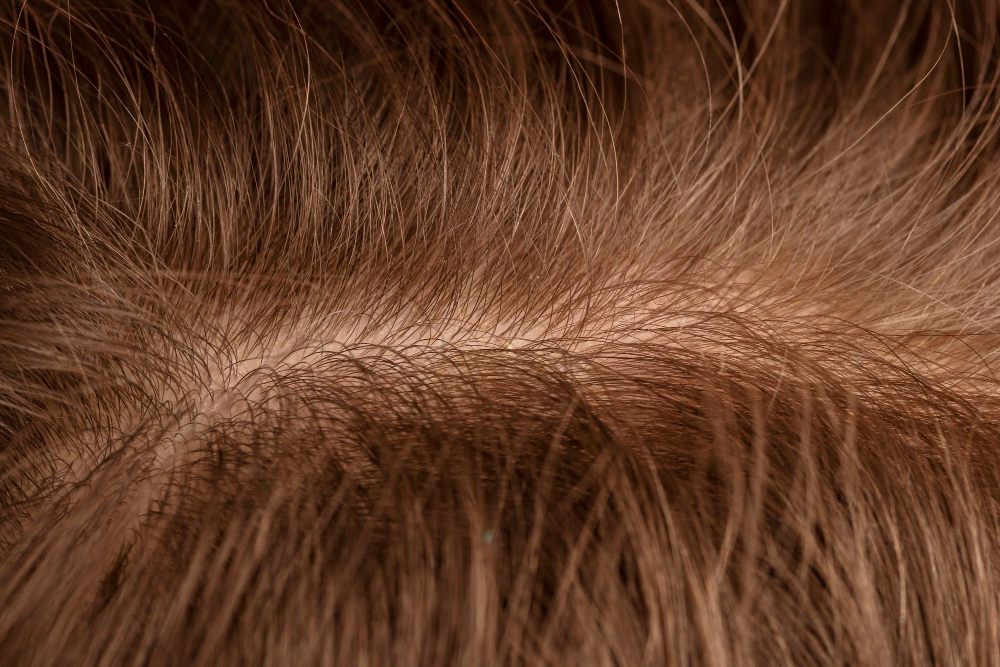
Understanding the “why” behind your scalp sensitivity is crucial. Common causes include:
1. Skin Conditions & Infections
Eczema, psoriasis, seborrheic dermatitis, fungal infections, or infestations like lice or a clogged hair follicle can all trigger scalp discomfort.
2. Stress & Hormones
Stress releases histamines, increasing scalp itchiness and inflammation (learn more). Hormonal shifts during pregnancy, menopause, or postpartum can also heighten sensitivity.
3. Haircare Products & Chemical Treatments
Sulfates, fragrances, hair dyes, and chemical relaxers can irritate the scalp. Always check product ingredients and opt for gentle, scalp-friendly formulations.
4. Environmental Factors
Sunburn, pollution, or extreme weather can inflame the scalp. Protective measures like hats or UV-protective products are essential.
5. Tight Hairstyles & Hair Extensions
Ponytails, braids, or long-lasting extensions can create tension, leading to soreness. Ensure to do post-extension care.
6. Sleeping Position & Physical Pressure
Awkward head positions at night may result in tenderness or tightness by morning.
Symptoms to Watch For

A sensitive scalp doesn’t always look the same for everyone. Some people notice visible changes, while others only feel discomfort. Here’s what to look out for:
- Redness or inflammation – This can indicate irritation, sunburn, or an underlying skin condition like psoriasis or seborrheic dermatitis.
- Burning or itching sensations – Often linked to allergic reactions, stress-triggered histamine release, or product buildup on the scalp.
- Flaking, dandruff, or dryness – Your scalp may be struggling with a weakened barrier. Learn more about dry scalp here.
- Pain, tenderness, or tightness – Known as trichodynia (or scalp dysesthesia), this symptom can be stress-related, neuropathic, or even linked to hair shedding. Here’s how to tell the difference between hair loss and hair shedding.
- Tingling or prickling sensations – A sign your nerve endings are on high alert, often caused by tight hairstyles, friction from hats, or chemical irritants.
💡 Research Note: A 2021 dermatology study found that scalp sensitivity is often associated with barrier dysfunction and neurogenic inflammation—meaning both your skin and your nerves play a role.
👉 Tip: If these symptoms last for more than a week or worsen with time, consult a dermatologist to rule out fungal infections, autoimmune conditions, or chronic scalp disorders.
How to Treat Your Sensitive Scalp
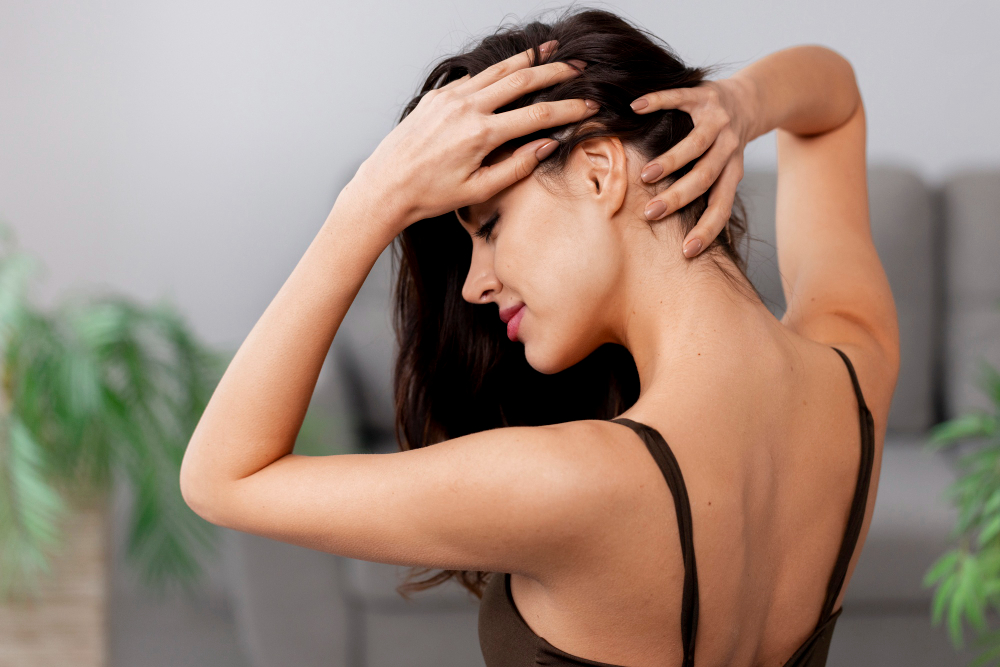
The best scalp treatments focus on soothing, hydrating, and protecting the skin barrier. Also, check out these 7 DIY remedies for a dry scalp.
- Use fragrance-free, sulfate-free shampoos (e.g., Kérastase Symbiose line).
- Book a professional scalp treatment at Haste — our therapies use specialized products and massage to calm irritation.
- Wash with lukewarm water — hot water strips natural oils.
- Try natural remedies like aloe vera, chamomile rinses, or green tea scalp soaks.
- If dandruff or fungal infections are involved, use zinc pyrithione or ketoconazole shampoos.
- Limit chemical processes (relaxers, bleaching, harsh dyes).
👉 Extra Tip: Exfoliate gently once or twice a month to remove buildup and improve scalp circulation. Also, learn how often you should have a scalp treatment to avoid overdoing it.
When to Visit Your Doctor
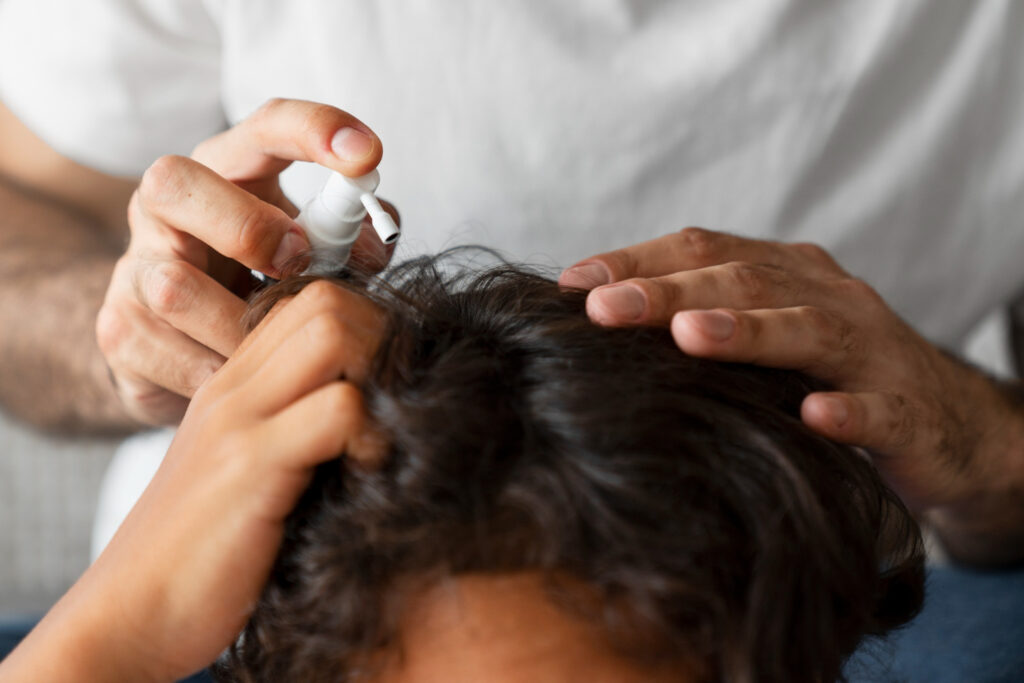
While most cases improve with proper care, you should see a dermatologist if you have:
- Persistent pain or irritation
- Sudden hair loss along with redness/inflammation
- Open sores, bleeding, or oozing
- Severe dandruff unresponsive to OTC products
👉 Extra Tip: If scalp sensitivity is paired with headaches, this could indicate tension headaches or migraines rather than scalp-only issues.
Caring for a Sensitive Scalp
Your scalp is the foundation of healthy hair. Treat it like you treat your skin. With the proper care, products, and treatments, you can soothe irritation, prevent flare-ups, and maintain comfort.
✨ Whether you’re struggling with dryness, sensitivity, or hair shedding, our experts at Haste Hair Spa are here to help. Book your scalp treatment in Boston today and give your scalp the TLC it deserves.
FAQ
Why is my scalp so sensitive?
Your scalp can feel sensitive due to various causes, including tension headaches, infections, and skin disorders. The scalp treatment you receive depends on the cause.
How do I know if I have a sensitive scalp?
Look for burning, itching, tightness, redness, flaking, or tenderness.
How can I treat my sensitive scalp naturally?
Use gentle, sulfate-free shampoos, natural oils like coconut or aloe vera, and avoid harsh chemicals.
Can a sensitive scalp cause hair loss?
Yes, persistent irritation can weaken follicles, making hair more prone to shedding.
How often should I get a professional scalp treatment?
Most people benefit from a professional scalp treatment every 4–6 weeks. This aligns with the skin’s natural renewal cycle and helps maintain balance without overstimulating.






